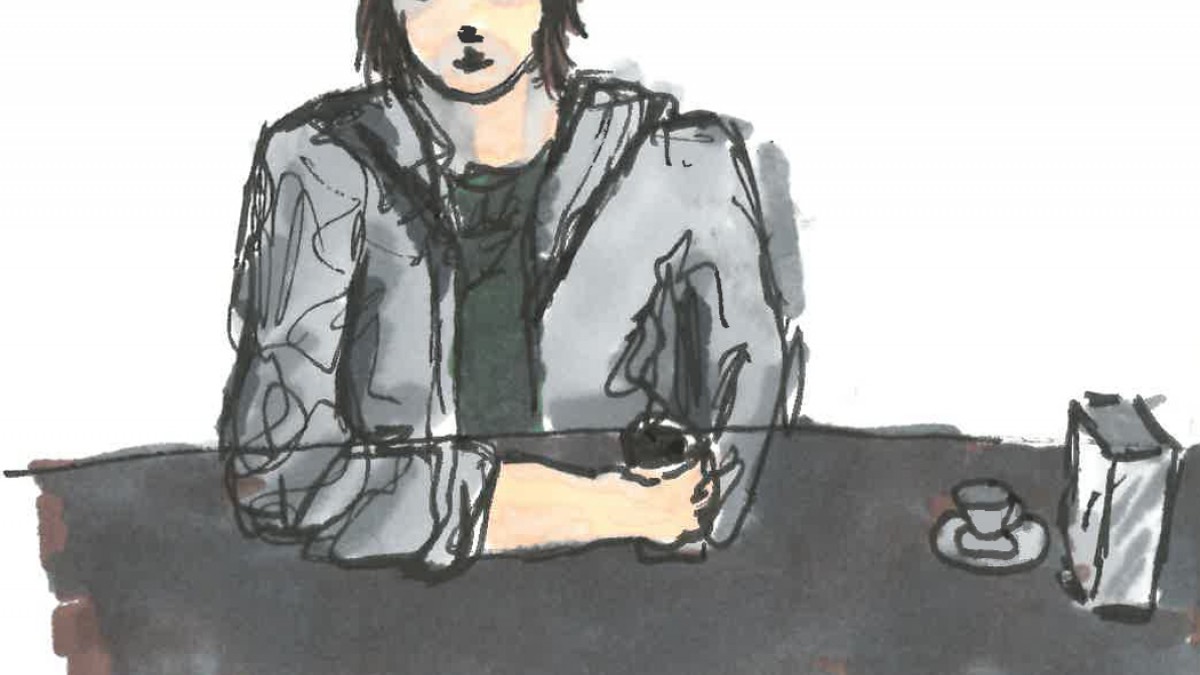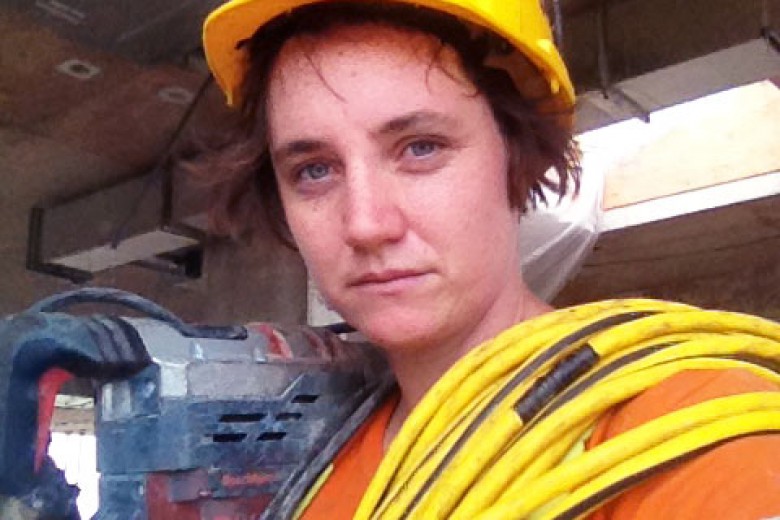“But you like working with your hands, right?”
The question hung in the air. There is only one right answer: yes. All the indignities, the constant gender stress, the unrelenting manual labour, the freezing cold, the unbearable heat – being an electrician apprentice is tough. But it’s supposed to be ok; you’re supposed to like working with your hands.
This time, two women at my local café ask the questions. They’re older than me, presumably lesbians, social workers. With middle-class expectations of doing what you love, they await my answer. They’ve heard about my graduate studies, the dead-end world of academia, how a year off recovering from an injury derailed my academic possibilities. I’m supposed to say “yes”, but I chafe. This isn’t about what I like, or want.
It’s a typical narrative for working class boys sent to “vocational” classes, as if mechanics or plumbing is a calling like the priesthood, that you feel called to do something, that you love it. But society streams most people into work based on constellations of race, class, ethnicity, locality, and gender expression. The most important question in kindergarten isn’t “what do you want to do when you grow up,” but, “what does your Daddy do?” People are convinced they’re good at some things based on adults’ conceptions of their parents’ social class, with a big dose of racism and sexism mixed in.
Here’s the thing about working with your hands. They get fucked up. The hands of people streamed into my trade are aging by the time they’re 30. The weak points for an electrician are the back and hands. Years of using hand tools for eight hours a day causes carpal tunnel or tennis elbow – injuries suffered by manual workers long before they had bougie names. My foreman tells me he can’t sleep because of tingling and numbness in his hands even though he’s been “off the tools” for years. Strong young men struggle with serious back problems. And WSIB is a joke: unless there’s a specific accident, you’re on your own.
As I write, my hands hurt. The muscles in my arms twitch unintentionally, and my limbs are constantly scratched and cut. A mysterious bruise on my foot hurts when I walk, and my feet feel like they’re rotting inside my boots. I don’t know if my back will hold up. At home, I’m too exhausted to make dinner or play with my daughter and run her bath, but I have to. No matter how bad I feel, I have to wake up in the pitch-black. They call it a vocation, so I’m supposed to be meant for this work, but I can’t help but feel that I don’t belong, that I’m better at other things, that I’m just here for the money.
As I write, my hands hurt. The muscles in my arms twitch unintentionally, and my limbs are constantly scratched and cut. A mysterious bruise on my foot hurts when I walk, and my feet feel like they’re rotting inside my boots. I don’t know if my back will hold up.
By 5:30 a.m., I’m in a Portuguese bakery. Nearly every customer is wearing safety boots, most order espresso with one sugar, using few words, drinking it where they stand, then heading off to work. I’m exhausted, barely awake, and I count out the change from my wallet hoping I’ll make it until Thursday. The espresso isn’t great, but it’s not about taste: here, coffee is a drug of necessity. It’s clear from my clothing that I do manual labour, but construction tends to be organized through ethnic networks which I’m clearly not part of, nor am I a man, so I don’t fit in. The other workers usually don’t ask questions though, in keeping with the near-silent, almost meditative quality of this early morning ritual, gearing up to face the day.
When another worker asks how I got into my trade, I have a rehearsed answer: “When I was young, I spent 5 years in the military. I had a trade there, but I thought, ‘Fuck this, I don’t want to work with my hands anymore,’ so I quit.” Then I spread my hands out in a resigned gesture and laugh, as that plan clearly didn’t work out. Sometimes I add that I went to university, which is even more of a joke. It’s implicitly obvious, to the worker, why I quit. But it’s also obvious why I came back. It’s the same reason everyone comes back: for the money.
I’m ok with my hands, and I like this work. It keeps my mind busy, and I feel like I’ve accomplished something daily. Sometimes I think to myself, “I have a great job and it’s fun.” I’m doing interesting work, and I’m getting my hands on every aspect of the trade.
But it’s not what I love. I love writing, research, travel, being with my daughter, playing music with my family, and organizing for social change. I’m a good writer and editor. I’m good at publishing things, finding the right people to write articles, building teams to cover stressful situations and events, finding, and getting ahead of, the political zeitgeist. That was my dream, and I spent years building organizations, teaching people, working with teams, building my own skills. But there’s no work. Those dreams, those skills, are rotting. I have no safety net, nowhere free to live while I do an “unpaid internship,” no one to pay my tuition so I can submit my thesis. I may escape temporarily, but my responsibilities and my working class life are always waiting to crush me. The only way to survive is to make a living wage and I can’t do that unless I sell my hands, my back, and my brain as a skilled labourer.
I’ve been trying to pick up some Portuguese, and I keep hearing this saying: “Trabalho não gosto.” Literally, it translates to “I don’t like work,” but it indicates that work is not for liking but for money. I can see how people get exploited because of their desire to have a job they love. Academic and non-profit sectors are rife with people working for less than living wages because their dreams are tied up with their jobs. But this middle-class value transfers poorly to working-class realities. Can you be happy with your dream job if you can barely make rent or afford food and your contract may end? I might be good enough to get a SSHRC scholarship, a funded internship, be a writer and editor – but without a safety net I must work construction. I’m lucky to be in a union and in a trade. I make almost enough to live on and next year will be better.
I keep hearing this saying: “Trabalho não gosto.” Literally, it translates to “I don’t like work,” but it indicates that work is not for liking but for money.
I’ve made my peace with this. I’m lucky that, despite being a girl, I learned computer programming, construction and computer sysadmin/repair. While the military ruined my life in many ways, it provided skills necessary for my trade. I thought I’d left that life behind when I spent 10 years as a student, traveller, political radical, editor, and writer. But in the end, my hands, my manual labour, and my ability to do tech work: that is survival for me.
I work for money. I trade my hands, my back, and my brain for money, by the hour, in a straight trade. I’m ok with this. This is life.
Just don’t make me pretend that I like it.






_780_520_90_s_c1.jpg)
